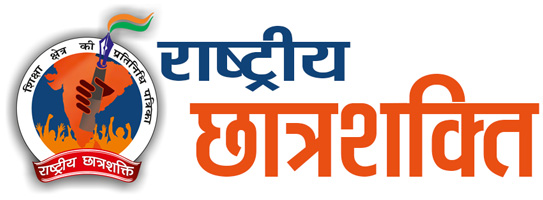Remember those chilly winters of January and February from this year? There were so called students protesting against the CAA all across India. The travel time from Delhi to Noida and Greater Noida was increased by more than half an hour because “revolutionaries” had encroached upon public land in Shaheen Bagh. Earlier these same so-called student leaders were burning buses and stone pelting in the national capital, that too in broad daylight.
Later these same student leaders were gathering funds from their allies in foreign countries to organise communal riots. They were very much successful in doing that. They killed over 50 people including one policeman and one IB officer.
It looked like they were not going to stop any time soon. As the videos of their sinister plans surfaced we got to know They would organise chakka jam across India and even cutdown the Northeastern India by blocking the Chicken Neck corridor.
But then Corona Pandemic arrived from China, remember the hysteria in it’s initial phase? The fear of death was more imminent compared to the wills of having CAA repealed. Hence these revolutionaries suddenly went underground allowing the police to remove their tents from Shaheen Bagh.
Corona Warriors
For a better prevention against Covid a Nation wide Lock down was announced and a huge number of people were caught offguard. Most of them belonged to the poorer stratas of society.
Now at this point of time when all revolutionaries had gone back homes and packed themselves in their bedrooms with Dalgona coffee and Netflix, out came the student activists of ABVP.
ABVP with it’s 33 lakh+ members, launched it’s helpline numbers for students stranded away from there homes. The neat and elaborate ground network of ABVP worked very efficiently and the student activists were delivering food packets to the needy from the second day of lockdown.
By 31st march, ABVP had 2500 volunteers across India working day and night. Later, ABVP joined hands with RSS and Sewa Bharti to form the biggest relief forces ever having been active in India.
Academic activism during lockdown.
One of the major concerns with almost all student organizations worldwide lies in their independent thinking and execution.
The student parties work as a buffer stock of young party workers of political parties. These so called student leaders work as coteries of their political masters and do only what they are told.
This “follower” attitude eats away scope for independent and creative thinking for student leaders.
ABVP, having distanced itself from all political parties enjoys the independence of taking her own decisions, running innovative programmes and taking constructive, non political steps in favour of student community.
One prime example was a recent event named Bhasha Sangam organised by ABVP unit in JNU. Bhasha Sangam was a language learning programme where members of ABVP learning various foreign languages in JNU arranged free online language classes during the lockdown.
Bhasha Sangam offered 10 foreign languages and 5 Indian languages including French, German, Chinese, Japanese, Tamil and Sanskrit among others.
Over 2500 registrations from across India and a few other countries came for Bhasha Sangam. 30+ teachers and 50+ Volunteers were engaged through out in this. The classes went on for two months and in the end about 500 students received their certificates of language learning.
Foreign language classes are usually very expensive, some of these classes may go as high as 1500-2000 Rs per hour. Minimum being atleast 500 Rs/hour for languages like French, Arabic etc.
The monetary value of Bhasha Sangam event is estimated at about 65 lakh rupees. Nonetheless it was organised for free by ABVP. The cost of organising this event was almost nil because it solely depended on mobilisation of students who acted as teachers in their free time to contribute their bit to the society.
Parishad Ki Pathshala
While it was easier for governments to announce that all schools and colleges will continue in online mode, even more easier was tweeting and writing articles against the feasibility of this move.
The tough part was challenging the circumstances and providing an alternative to students who could not access internet for online classes.
To combat these challenges, ABVP launched “Parishad Ki Pathshala” yet another example of humongous student mobilisation, that too without any hue and cry.
ABVP members are visiting nearby slum areas and organising temporary schools/coachings for students who can’t access online schools.
Approximately 700 such schools are functioning across India. From a tiny village in Kaimur district of Bihar to Mandrem in North Goa, in all states and districts the ABVP karyakartas are organising regular classes for the underprivileged students in their vicinity. From ground level karykartas of local colleges in Orissa to the National General Secretary Nidhi Tripathi of JNU, all of them have their classes scheduled on particular days of the week, and they attend it without fail.
While the violent student movements usually become sensational and gains its place in history, the peaceful and constructive mobilisation of students for welfare of society is often missed out by the media.
Constructive mobilisation is going to be the new way of creating movements in a politically stable world.
Akhil Bhartiya Vidyarthi Parishad, world’s largest student organisation with over 33 lakh members across schools, colleges and universities of India and world has proved that it has the the required capability to transform not only India but world through her constructive and innovative approaches involving the student community.
(Author is a student activist in Jawaharlal Nehru University)

